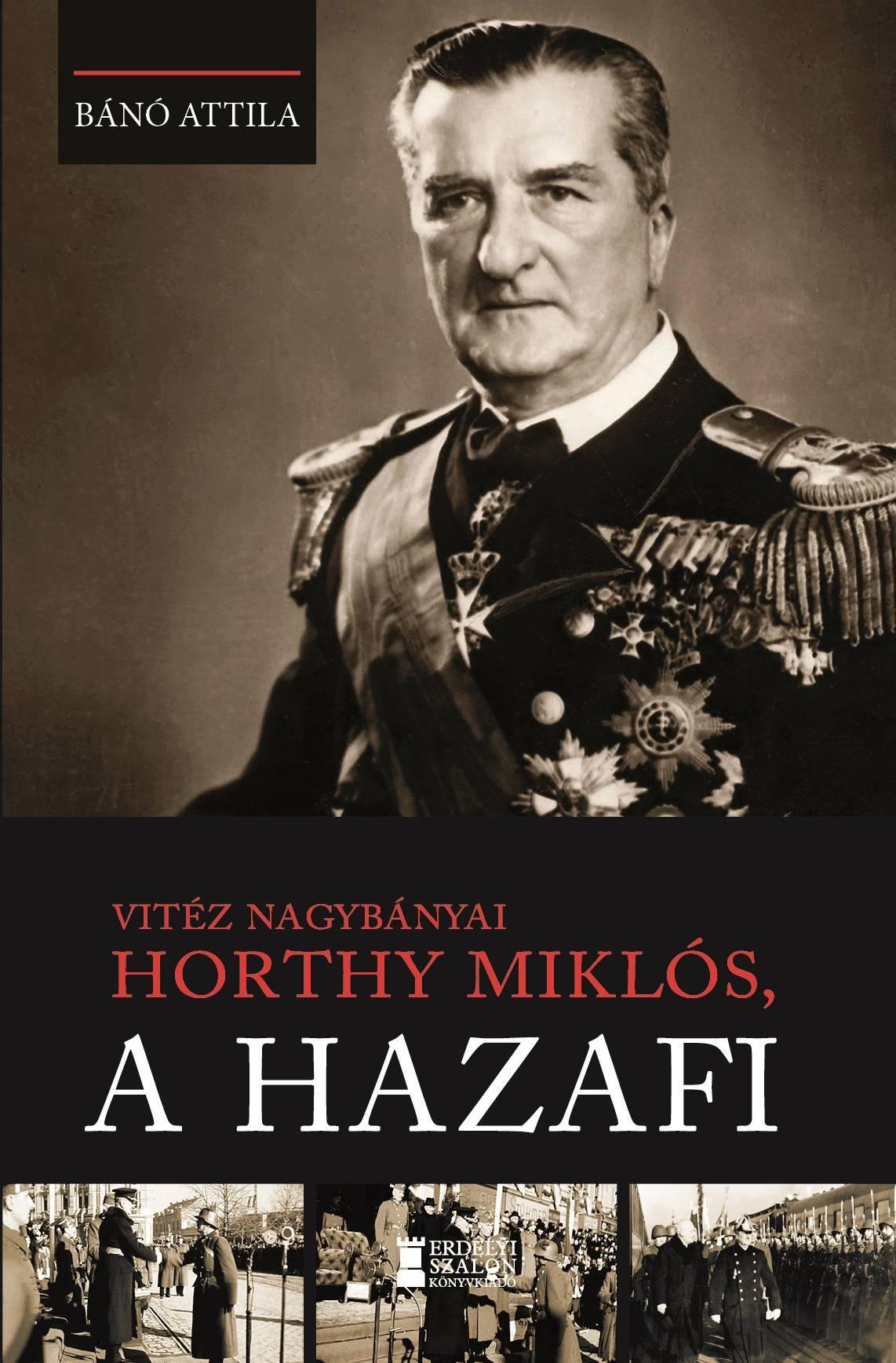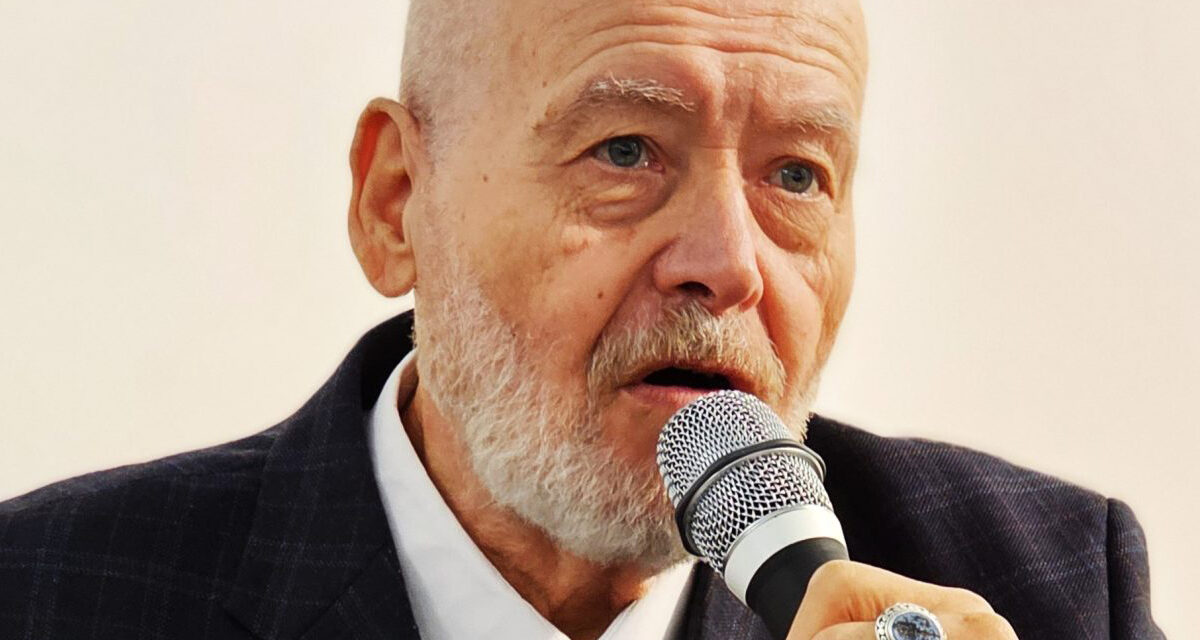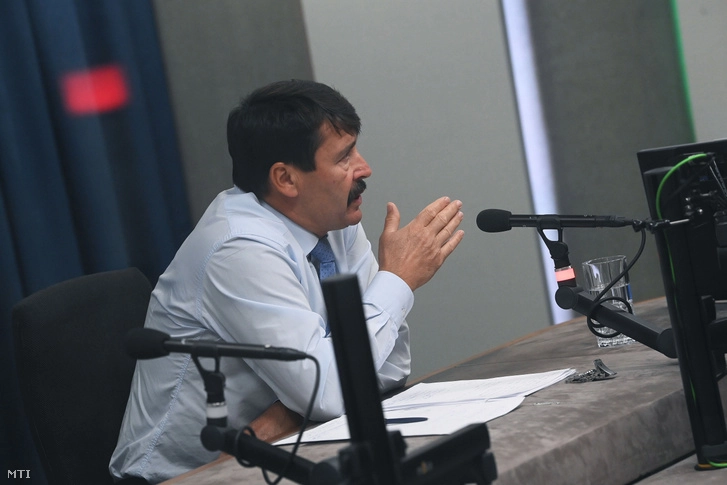József Antall was a broad-minded statesman, but he was in a more difficult situation than Miklós Horthy in that he did not have a nationally committed and professionally prepared politician at his disposal. Interview with publicist Attila Bánó, author of the historical work Miklós Horthy of Vitéz Nagybánya, the patriot
Mr. Editor, "Here, everything has to be gradually transferred from the unreliable ones into reliable hands. You can't win over the enemy with good positions either," said Miklós Horthy in his letter to Prime Minister Pál Teleki on October 14, 1940. You, Mr. Editor, were active during the regime change in 1989-90 and also afterwards. How could this admonition escape József Antall's attention?
József Antall was a broad-minded statesman, but he was in a more difficult situation than Miklós Horthy in that he did not have a nationally committed and professionally prepared politician at his disposal. When awarding government and party positions, he often had to take into account people who applied for high positions, but in fact did not share his worldview. This then took its toll, and I think it was one of the obstacles to holding the so-called spring cleaning. Quite a few of the people from the previous system ended up in leading positions, as they were, so to speak, indispensable professionals. In 1992, the situation was greatly worsened by the Antall-Csurka conflict, which mainly harmed those who were suspected of sympathizing with Csurka. Around this time, quite a few reliable, nationally committed intellectuals were marginalized.
Miklós Horthy and József Antall both took over a difficult inheritance.
Horthy got a country shrunk to one-third, looted, defeated in war, and suffered a red dictatorship, while Antall got the raging remnants of a flabby, so-called socialist one-party system, from which the more valuable, still usable economic elements were privatized by the more skillful figures of the old order. Horthy was in a much luckier situation in that he had at his disposal a set of educated, capable and talented leaders. Antall did not have people of such caliber as Count István Bethlen, Count Kunó Klebelsberg or Count Pál Teleki. After 1920, the Prime Minister's Office, the Ministry of Foreign Affairs, culture, education and almost all sectors of the economy fell into good hands. This was then reflected in the rapidly improving state of the country.
Marxist propaganda could not say much good about the Horthy era, it constantly denigrated it. Older people remember well the expression "the country of three million beggars".
It is now an accepted historical fact that after the First World War, the economy stabilized within a short period of time. This was largely due to the People's Confederation loan, which the country's leaders honestly invested in the Hungarian economy, thereby alleviating the severe capital shortage. During the fifteen-year period from 1921, the average growth rate of industry was 5.6 percent, within which the textile industry grew almost tenfold. Spectacular results were achieved in the production of machines and vehicles, most of the canneries were established at that time, and the government also provided serious support to the fruit and vegetable sector. Of course, there were poor people, and unfortunately there are still such people today, but the general standard of living has risen significantly. The pengő, introduced in 1927, became one of the strongest currencies in Europe. The Antall era could not boast of similar results, and this, among other things, led to the 1994 victory of the constantly struggling left-liberal side.

Source: lira.hu
"With us, political parties can operate freely, and no one is disadvantaged for his worldview and political convictions," read Miklós Horthy's radio speech draft of March 15, 1944. Later, in the period between 1948 and 1990, this could not be said even in the most cheerful barracks of the Eastern Block. At the same time, the representatives of this latter era still label Miklós Horthy as a bastard. Why can they do this?
The reason is because the national-Christian side, despite the so-called regime change - perhaps out of some misconstrued chivalry - never acted decisively against them, never brought the perpetrators of political and economic crimes to account. The left was emboldened by this. They realized that they could easily settle their ranks, which they did with Western support and with the help of the media in their hands. The labeling and defamation of Miklós Horthy to this day is connected with the continuation of the Marxist legacy. Instead of acknowledging the former governor's merits, the left is trying to highlight his mistakes and make him the main person responsible for the crimes that the German occupiers and the Arrow servers are responsible for.
This is unacceptable. Miklós Horthy was a patriot, and Prime Minister József Antall already stated this in a well-known TV interview thirty years ago, on the occasion of his reburial in Kenderes.
Minister János Lázár recently made a statement in this spirit, and this opinion is also shared by those Hungarian historians who are able to resist the pressure that tries to make them accept untruths in this regard. In this regard, I quote this short excerpt from József Antall's TV interview: "If there hadn't been so many unfair judgments about the person of Miklós Horthy, then it wouldn't be the case that many people are examining the funeral with political overtones, which could have become a political act." The continuation quoted in the introduction is related to this: "Where they lie once, the compensation of the lie always results in emotional and often wrong conclusions".
Miklós Horthy quotes Bismarck in his manifesto of October 15, 1944: "No nation is obliged to sacrifice itself on the altar of its ally." How do we know that Bismarck himself would be out of place in today's European Commission with this sentence?
First of all, this can be seen from the fact that the EC's left-liberal managers expect this from the member states of the union, in the spirit of the "one for all, all for one" principle. This principle is also unacceptable because the union is politically divided. It cannot be expected that the views of the current globalist-left-liberal leadership will be accepted by the politicians of the national party. Bismarck was right.
Under the false pretext of protecting democracy, this "elite" expects Ukraine's unconditional armed and financial support, as well as the approval of anti-Russian sanctions, which are incredibly harmful to Europe. He imposes his will on the population of the member countries, while he never once asked the people involved. In the "high circles" of the EC, Chancellor Bismarck would be just as incompetent as our Prime Minister Viktor Orbán is seen there, because he does not represent the interests of the USA and the EC, but his own nation.
Featured image: Attila Bánó at the book launch in the plot - taken by Ferenc Géher












